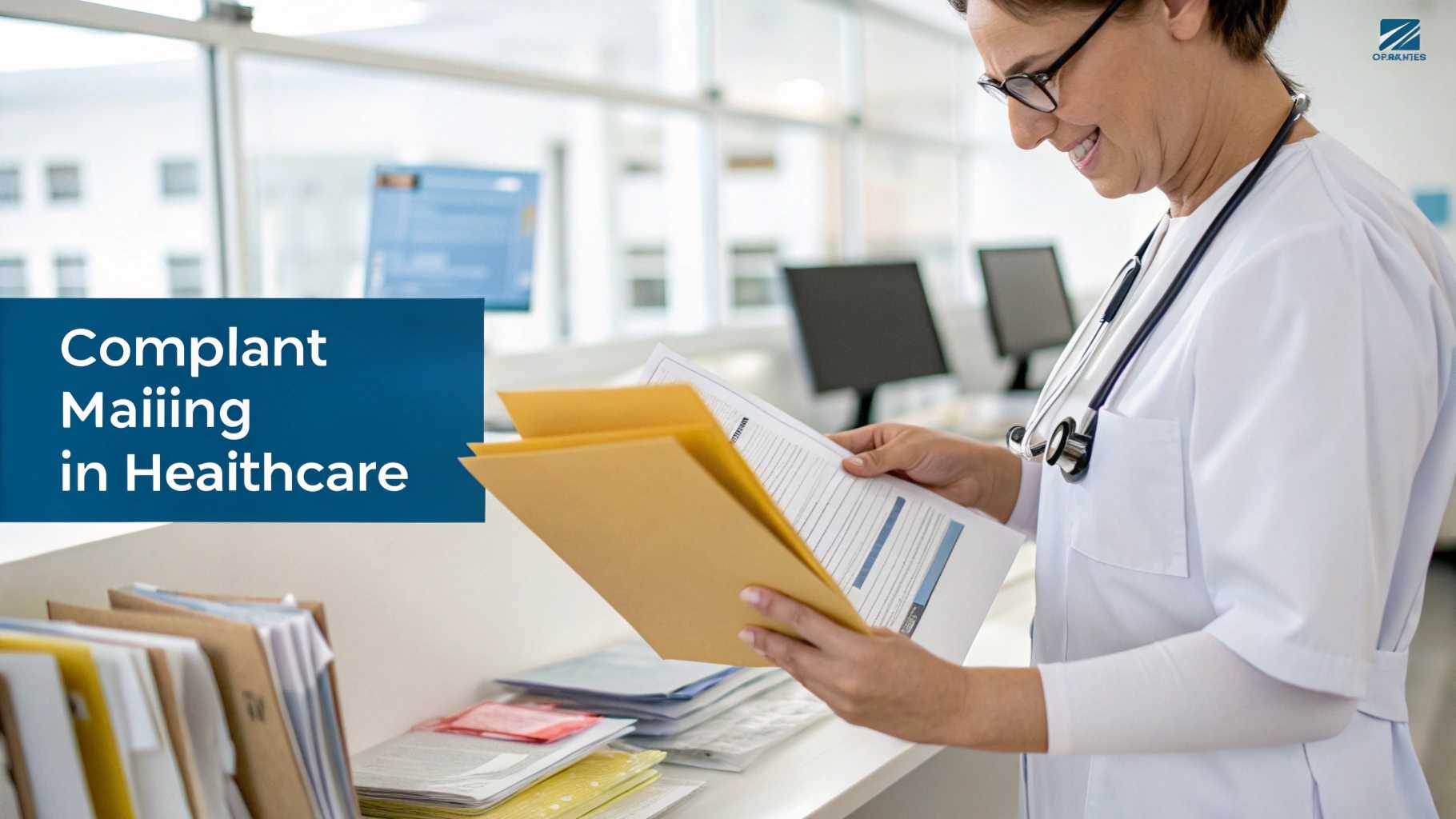In today’s world, protecting patient information is more critical than ever. With the increasing reliance on technology and direct communication channels, healthcare organizations must ensure that they comply with the Health Insurance Portability and Accountability Act (HIPAA). One of the essential components of maintaining compliance is utilizing HIPAA compliant mailing methods. This article will delve into what HIPAA compliant mailing is, its significance, and how HIPAA direct mail can play a pivotal role in safeguarding sensitive health data.
HIPAA, enacted in 1996, is a federal law designed to protect patient health information from being disclosed without the patient’s consent or knowledge. It sets national standards for the protection of electronic health information, ensuring that medical providers understand their responsibility in safeguarding patient data.
Healthcare providers, insurers, and any entity that deals with protected health information (PHI) must adhere to HIPAA regulations. Non-compliance can lead to severe consequences, including:
- Heavy fines and penalties
- Legal repercussions
- Loss of reputation and trust
Ensuring compliance is not just about avoiding penalties; it is also about maintaining patient trust. Patients need to feel confident that their sensitive information is safeguarded when they share it with healthcare providers.
HIPAA compliant mailing refers to the secure methods employed to send and receive documents containing PHI. This process must include measures that protect against unauthorized access during transit and delivery. Organizations should implement the following in their mailing practices:
- Secure packaging that prevents exposure of sensitive information
- Use of certified mailing services that adhere to HIPAA regulations
- Logging and tracking of sent documents to ensure delivery to authorized recipients only
Implementing HIPAA compliant mailing methods helps organizations avoid breaches and ensures they are operating within the legal framework established by HIPAA.
When discussing HIPAA compliant mailing, it is essential to highlight HIPAA direct mail. This specialized mailing service entails sending marketing materials, patient communications, or notifications securely, ensuring compliance with HIPAA regulations. HIPAA direct mail can include:
- Patient statements
- Appointment reminders
- Prescription notifications
- Health-related educational materials
Direct mail has proven to be an effective way to communicate with patients while ensuring their information remains confidential. By using secure printing services and understanding the implications of HIPAA regulations, healthcare organizations can safely reach their audiences.
Protected Health Information (PHI) includes any information that can identify a patient and pertains to their health status, healthcare, or payment for healthcare services. Protecting PHI during the mailing process is vital for several reasons:
- Prevent Unauthorized Access: Secure mailing ensures that only authorized individuals can access sensitive information.
- Consumer Trust: Patients are more likely to share their information when they know their data is handled securely and confidentially.
- Legal Protection: Following HIPAA guidelines protects organizations from facing legal challenges associated with data breaches.
To ensure that your mailing processes are HIPAA compliant, consider the following best practices:
- Utilize Trusted Mailing Services: Partner with companies that specialize in HIPAA compliant mailing. These services provide the necessary security measures to protect PHI during the mailing process.
- Implement Training Programs: Regularly train your staff about the importance of HIPAA and how it applies to mailing practices.
- Adopt Secure Technology: Use encryption and secure access protocols in your mailing systems to enhance security.
- Regular Audits: Conduct audits to identify potential vulnerabilities within your mailing processes.
Maintaining HIPAA compliance in mailing practices is essential for any healthcare organization operating today. With the rise of information technologies, patient information can be more vulnerable than ever, making it imperative for providers to implement stringent measures to protect it. Whether utilizing HIPAA compliant mailing or HIPAA direct mail services, organizations can safeguard their patient information while effectively communicating with them. By adhering to the outlined best practices, healthcare entities can build trust, uphold legal obligations, and prioritize patient confidentiality in all their mailing endeavors.
